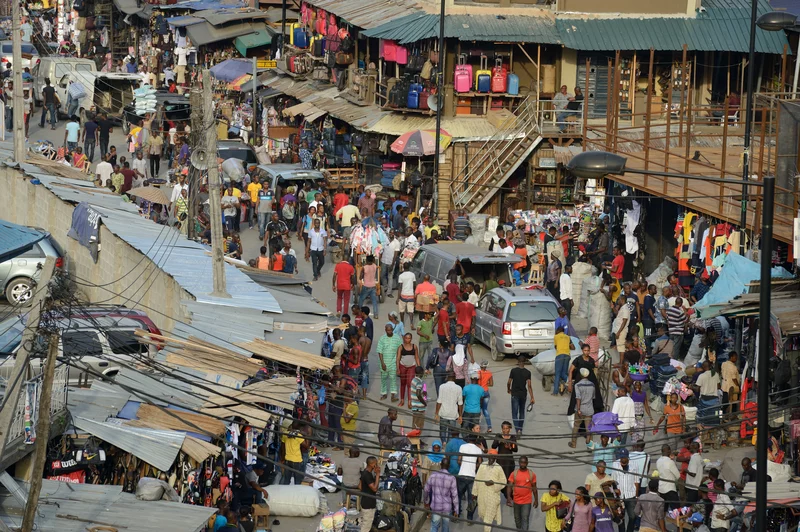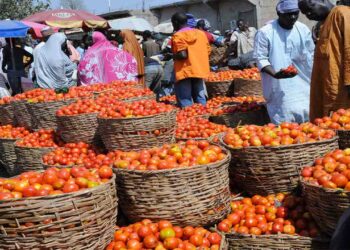The wave of discontent against the economic policies of the President Bola Tinubu-led administration has reached Kogi State, as traders took to the streets of Lokoja in a massive protest against the skyrocketing costs of essential food items.
Market men and women voiced their grievances over the exorbitant prices of basic commodities, expressing how the persistent inflationary trend has adversely impacted their businesses and livelihoods.
The protest in Kogi State comes on the heels of similar demonstrations in Suleja, Niger State, where residents decried the harsh economic conditions imposed by the current government.
In Lokoja, traders lamented the drastic increase in prices, highlighting the significant rise in the cost of staples like rice and beans.
Mrs. Inuwa, a rice and beans vendor, recounted how the surge in prices has severely affected her profit margins, with basic goods now beyond the reach of many consumers.
According to her, the price of a “mudu” of rice has soared from N800 to N2000, reflecting a staggering escalation fueled by the surge in the cost of wholesale commodities. The dire situation has led to dwindling sales and mounting financial losses for traders like herself.
Another trader echoed similar sentiments, emphasizing the disparity between efforts to maintain reasonable prices and the reality of poor patronage.
Despite traders’ attempts to absorb some of the increased costs, the lack of consumer purchasing power has dampened their prospects for profitability.
Mrs Mary, who sells palm oil, bemoaned the diminishing returns from her business, attributing the downturn to the escalating costs of sourcing goods from distant markets.
She said rising expenses coupled with stagnant revenues have made it increasingly difficult for traders to sustain their operations.
Similarly, Mrs. Adesuwa, a vegetable vendor, underscored the urgent need for government intervention to alleviate the burden of soaring food prices.
She urged authorities to implement measures aimed at stabilizing the cost of essential commodities, warning that the current trajectory threatens to erode already slim profit margins and exacerbate food insecurity among Nigerians.
As protests escalate across various states, stakeholders are calling on the government to prioritize the welfare of citizens and address the root causes of economic hardship, including inflation and supply chain disruptions.





